- Home
- Mike Lupica
The Big Field Page 2
The Big Field Read online
Page 2
So Hutch moved over from short, Cody moved from second to right, and that was their team, the youngest ever trying to win the state championship at this age level. No 17-year-olds—just two 16-year-olds, Paul Garner and their ace, Tripp Lyons. And more 14-year-olds than 15-year-olds.
Now “Cullen’s Kids,” as Hutch’s mom called them sometimes, were one step closer to the title, having made it to the second round.
“You know what the real bottom line is with Darryl?” Hutch said. “He’s the best player we’ve ever played with or against, and if you love baseball the way we do, you gotta love watching him play ball.”
“I’d tell you I agree with you,” Cody said, “but then I’d have to kill you.”
“Darryl’s the reason it doesn’t kill me that I’m not playing short,” Hutch said. “It’d be like a golfer getting bent out of shape that he has to play number two behind Tiger.”
Cody stood up now, walked up the sidewalk and opened the gate to the chain-link fence in front of the Hutchinsons’ house, one of the few two-story houses in the whole neighborhood, even if it looked like one of the oldest. Hutch had never given much thought to that fence, just because it had always been there, and was like a lot of the other front-yard fences in their neighborhood. It was Cody who made a big deal of it, saying that some people grew up in white-picket-fence neighborhoods, and other people grew up with fences like theirs.
“I’m gonna say it one last time,” Cody said. “You won the game tonight, not him.”
“Yeah, yeah,” Hutch said.
Hutch watched him until he disappeared around the corner, thinking about what Cody had said about the game.
Yeah, he told himself. I did get those three hits tonight. I did drive in four runs. I did make a play in the fourth, going into short right, that saved a couple of runs.
But anybody who watched the game was going to remember the play Darryl had made in the ninth.
On my ball, Hutch thought.
He was never going to admit that out loud, not even to his best friend, but there it was. In his heart Hutch knew he would get over not playing short on a date Cody liked to call the twelfth of never.
He went up to his room and turned on the small fan he had on his desk. The heat was always brutal in Florida in the summer, but the past few days had been even hotter and muggier than usual, and even the thunderstorm that had blown through the area about an hour before the game tonight hadn’t done anything to cool things off. There were only two rooms in their house that had air-conditioning: the living room and his parents’ bedroom. But his parents were down in the living room watching a movie they’d rented from Blockbuster, and so Hutch had come up here to listen to the Marlins-Mets game on the radio.
He stripped down to his shorts, trained the fan at the head of his bed, lay down on sheets that wouldn’t feel cool for long, and tried to concentrate on the Marlins.
Problem was, there were shortstops all around him. The poster of his hero, Jeter, over his bed and the one of Cal Ripken Jr. over his desk. On the ceiling was Ozzie Smith, “the Wizard of Oz,” doing that backflip he used to do when he ran out to play short for the Cardinals.
Not to mention the best shortstop in the house, the one downstairs watching the movie:
His dad.
He had been the first Hutch Hutchinson, even if he no longer went by that nickname. He was just back to being plain old Carl Hutchinson. He’d told Hutch he was going to try to make the game tonight, but he never showed. Again. This time, he said, it was because one of the other drivers hadn’t shown up at the driving service he worked for, and he’d had to make an airport run to Miami.
His dad always seemed to have a good reason when he missed a game.
Sometimes Hutch thought it was because he just didn’t love baseball anymore, because baseball had broken his heart, because he was supposed to be on his way to the big leagues once and never made it out of East Boynton.
It’s not going to happen that way with me, Hutch told himself now.
Even if I am playing second base—more like second fiddle, actually—to Darryl.
It’s only for a couple of months, he kept telling himself. Cody liked to say that none of this was going to matter when they got to Boynton Beach High and Darryl was playing for Santaluces Community and Hutch was back at his normal position.
But Cody didn’t know something, even though he thought he knew everything about Hutch. Cody Hester didn’t know, at least not yet, about Hutch’s dream of getting out of East Boynton, getting out of Florida and playing his high school baseball a long way from here, on a baseball scholarship at one of the fancy boarding schools up north in New Jersey he’d been reading about. One of the schools with famous baseball programs to go along with their basketball programs.
Baseball was going to be his ticket out of here even if it hadn’t been his dad’s.
And Hutch believed in his heart that his best chance to do that was at short. If you followed baseball the way he did, and nobody he knew followed baseball the way he did, you knew that a great shortstop was worth his weight in gold.
Just look around: The Yankees had Jeter and the Rangers had Michael Young and the Mets had José Reyes, whom Hutch just liked watching run more than anybody else in baseball, playing any position. The Marlins had Manny Ramírez’s brother Hanley, and even the little guy who played short for the St. Louis Cardinals, David Eckstein, had ended up the MVP of the World Series a couple of years ago.
On the radio now, above the noise from the fan, he heard one of the Marlins’ announcers, Dave Van Horne, his voice excited, the words jumping across the room, talking about Hanley Ramírez moving to his left and snapping off a throw to first to beat the runner by a step.
“What can I tell you, folks,” Van Horne yelled, “the kid’s a star!”
Why not? Hutch thought. Hanley’s playing a star position. You had to know that whether you were a team guy or not.
The scouts didn’t come to see second basemen.
3
DARRYL WAS LATE FOR PRACTICE MONDAY AFTERNOON.
It wasn’t the first time.
He hadn’t been late for a game yet, even though there’d been some pretty close calls, including the championship game last Friday night. He’d shown up fifteen minutes before the first pitch, after the rest of the team had taken both batting practice and infield.
Today, he said, he thought he was getting a ride from a friend of his mom’s, but the friend had never shown up.
So he had to go take the bus to Caloosa instead.
Which was late.
“Coach,” he said, smiling in an embarrassed way, “I’m sorry this sounds like such a lame excuse, but it’s the truth.”
“Relax, Darryl,” Mr. Cullen said, not even looking up from the end of the bench, where he was making out the order for batting practice. “I believe you.”
“Even so,” Darryl said.
“Even so, nothing,” Mr. Cullen said. “It’s the same off the field as it is on: You can only control what you can control.”
“You’re the man, Mr. C,” Darryl said.
Darryl must have sprinted from the bus stop and across the Little League field at Caloosa Park, where they were practicing today, because he was acting as if he was out of breath, like he was standing on third base after hitting a triple.
“Now go get yourself a drink of water and get ready to hit while I get warmed up,” Mr. Cullen said. “You can go third, after Cody and Hutch.”
Mr. Cullen usually liked to pitch BP rather than waste somebody’s arm or put somebody on the mound who couldn’t get the ball over the plate and would just aggravate the hitters. He went out to the mound now and threw some warm-up pitches to Brett Connors while Cody and Hutch waited near the on-deck circle at Caloosa.
“You think I’d be hitting third if I showed up right before BP?” Cody said when Darryl was out of earshot.
“What I think,” Hutch said, “is that you should shut up and hit.”
Cody walked away, shaking his head, saying, “I can’t believe people think you’re the nice one.”
Hutch leaned on his bat as he watched Mr. Cullen pitch to Cody, who had an open stance and was a dead pull hitter, legendary for scattering guys on the third-base side of the field with screaming foul balls when he’d open up his hips too early. Hutch was actually less interested in Cody’s batting style than in seeing how hard Mr. Cullen was throwing today. When he was a kid, he’d been a high school pitching star up in Vero Beach known as King Cullen. And had, he’d informed them, pitched a couple of years in the Red Sox farm system. But he hadn’t thrown hard enough to become a real prospect—“Unfortunately, I was an eighties guy,” he told them, “and not because I grew up in the eighties”—and had moved down to Palm Beach County to start what was now a big real estate company, even doing his own television commercials for it, which made him sort of a local celebrity.
Even though he was in his forties now, he could still throw harder than anybody in their age group. And sometimes he liked to really bring it in BP. His theory was: If his guys could hit him, they could hit anybody in Legion ball.
Hutch saw right away that he really planned to bring it today, just off his first few pitches to Cody.
“Look at him,” Darryl said. “Man’s sweating already like he’s on the free throw line with a minute to go.”
“This is gonna be one of those days when he goes out of his way to make us look bad,” Hutch said.
“Not me,” Darryl said.
“You sure?” Hutch made sure Darryl saw him smiling, so it didn’t come across as some kind of challenge.
“Wait and see,” Darryl said. “He can hump it up there as much as he wants. All’s I see when I hit against him are mattress balls.”
“What’s a mattress ball?” Hutch said. He knew a lot of baseball expressions, and knew by now that Darryl had his own way of talking. But he’d never heard that one before.
Darryl grinned at him and said, “A pitch I can lay all over, homes.”
Darryl called most guys on the team “homes.” For homeboys. Hutch wasn’t sure if it was because Darryl just liked the expression, the cool way it sounded, or because he still didn’t know everybody’s names.
“Mind if I cut the line?” Darryl said now.
And, just like that, Darryl was walking casually toward home plate as Cody ran out the last ball he’d hit, acting as if deciding to change the order this way was the most natural thing in the world.
To him, maybe it is, Hutch thought.
Mr. Cullen didn’t seem to notice that they were hitting out of order. Or maybe he just didn’t care, because it was Darryl.
Mr. Cullen threw him a breaking ball in the dirt, grinning as he did, like he was messing with him.
The second pitch was the one. A mattress ball.
There was a tall outfield fence in Caloosa, out beyond the grass that seemed to be freshly cut here the way the infield always seemed to be freshly raked, but Hutch had only seen high school varsity players clear it.
Until now.
Darryl hit it so far over the center-field fence, one that included an ad for Ken Cullen Real Estate, that Hutch wondered if it might roll all the way to I-95.
That wasn’t the most amazing thing.
The most amazing thing was that it didn’t even look as if Darryl Williams had swung hard, that he’d hit a ball that hard with just a flick of his wrists.
He was already walking away from home plate while the ball was in the air, as if that was all the batting practice he needed today.
Mr. Cullen still had his back to home plate, watching the flight of the ball.
To no one in particular, he finally said, “And that, gentlemen, is why the old coach ended up in real estate instead of at Fenway Park.”
Hutch stopped watching Mr. Cullen then and checked out Darryl. Thinking there had to be some reaction after you hit a baseball like that.
And there was.
Darryl was smiling, shrugging his shoulders and putting his hands out, the way Michael Jordan once did on his way to scoring thirty-five points in the first half of a game in the NBA Finals.
Like even he couldn’t explain why he was this good.
Mr. Cullen had told them when the team had first been selected that they weren’t going to choose a team captain until they’d gotten to know each other a little bit; if they named a captain before they even got out of the county tournament, it would be like electing a class president the first week of school.
They were sitting in a circle in the outfield the way they usually did after every practice, chugging down Gatorade and power drinks and ice water, when he announced they were going to name the captain before they went home today.
“I know you probably think it’s kind of an honorary thing,” he said. “And maybe you even think we don’t need one on this team, because we’ve got a bunch of hard-working guys with great work ethics.
“But I’ve always thought being a team captain in sports meant something. And on every Legion team I’ve ever coached, going all the way back, I’ve always thought of my captain as being more like a player-coach.”
He stood up. “Any questions?”
Brett Connors raised a hand.
“I’ve got one, Coach,” he said. “How do you want us to do this? Should we pick a couple of names and then vote on those?”
Mr. Cullen put his hands up and walked between Hutch and Cody to the back of the circle. “You guys decide. This is your deal all the way.”
Hutch actually thought Brett would make a good captain. He had grown up in Lantana before moving to East Boynton, so he had played Little League with guys from both places. He was a catcher in baseball and a middle linebacker in football, and everybody on the Cardinals knew by now, after just the handful of tournament games they’d played, that trying to get to home plate when he was blocking it was like trying to get a yard against him in football.
Every minute he was on the field, whether he was hitting or catching or just running their infield drills from the plate, he was all business. It made him Hutch’s kind of ballplayer.
“Okay, then,” Brett said. “I’ll get this party started. I nominate Hutch to be captain.”
Right away, Cody said, “Second.”
Brett looked around. “Okay, we got ourselves one nominee. Any others?”
Nobody in the circle said anything. Hutch kept his head down. He was happy that Brett thought enough of him to think he’d make a good captain. Hutch just didn’t want his teammates to see him happy.
Didn’t want to act as if he wanted it too much.
“Okay, let’s do it another way,” Brett said. “Anybody opposed to Hutch being captain?”
Hutch said, “I was actually going to nominate you, Brett.”
“Don’t even think about it,” Brett said. “Everybody knows you should be the captain.” He stood up. “Everybody for Hutch Hutchinson, put your arm in the air.”
Hutch allowed himself to look around now, and saw his teammates’ arms shooting up in the air.
Cody put both of his up.
The only one who didn’t, Hutch noticed, was Darryl, who was sitting next to Mr. Cullen in the back of the circle.
“Then Hutch it is,” Brett said.
Then they were all saying “Hutch…Hutch…Hutch” as if woofing out his nickname, and Cody was pulling Hutch to his feet, the Cardinals all around him, trying to join hands above his head, a bunch of guys who’d only come together after the school year ended feeling like a team that had been together, really together, for much longer.
It was when they broke free that Hutch noticed Darryl walking alone toward the bench on the first-base side of Caloosa.
When he got to the bench, he turned around, no expression on his face, put his hands on his hips, and stared directly at Hutch.
Or through him, maybe.
Then he kept walking, toward the parking lot.
It was as if a guy who didn’t seem
to care about anybody on the team suddenly cared about this:
Being captain of the team.
4
HIS DAD, HUTCH KNEW, HAD HELD A LOT OF JOBS IN HIS LIFE, even if he hadn’t held on to any of them for very long.
Carl Hutchinson didn’t talk much about that because he didn’t talk much about anything, not for more than a few sentences at a time. Most of what Hutch knew about the different things his dad had done since he stopped playing baseball came from his mom, who had been his dad’s high school sweetheart and pretty much been with him ever since.
His mom, Connie Hutchinson, the former Consuela Valentin, was born in Ponce, Puerto Rico. If Hutch had gotten the baseball in him from his dad, he had inherited his dark skin and dark eyes from his mother, who had moved to East Boynton from Puerto Rico when she was ten.
“Your father and I have been together through thick and thin,” she’d say. “Sometimes extra thick on the thin.”
Then she would smile and say, “¡Ay, bendito!” It was her catchall phrase from what she called her Spanglish, sometimes happy, sometimes sad, sometimes in between.
Carl Hutchinson had made it out of Legion ball and high school ball to the minor leagues, first in the Braves’ farm system and then in the Twins’. He’d finally made it to Triple-A with the Twins, but that was as far as he made it. He was out of professional ball by the time he was twenty-four.
Carl Hutchinson tried selling cars for a while after that, because he’d always been good with cars. When that didn’t work out, he started up a landscaping business with one of his old teammates from Boynton Beach High, figuring he could cash in, get a lot of business, just from people in the immediate area who remembered the kind of star ballplayer he had been. He’d been a local celebrity even before his time in the minors, when he’d taken the East Boynton Little League team all the way to Williamsport, Pennsylvania, for the Little League World Series, where they’d lost in the finals to Taiwan.

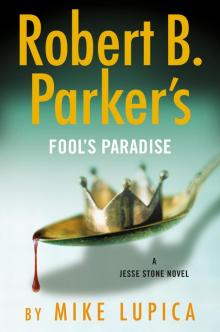 Fool's Paradise
Fool's Paradise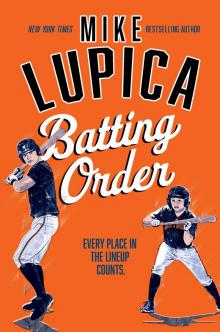 Batting Order
Batting Order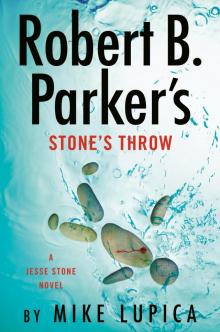 Stone's Throw
Stone's Throw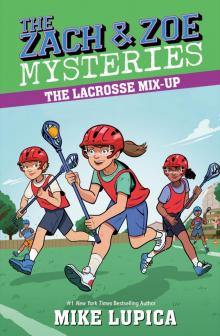 The Lacrosse Mix-Up
The Lacrosse Mix-Up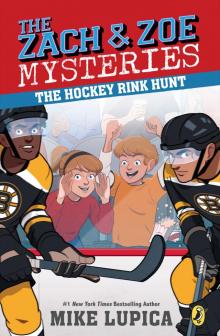 The Hockey Rink Hunt
The Hockey Rink Hunt Payback
Payback Triple Threat
Triple Threat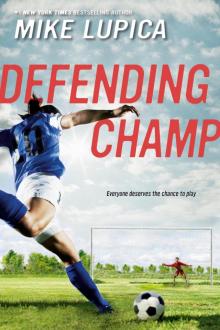 Defending Champ
Defending Champ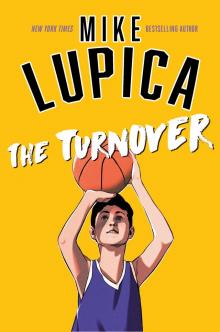 The Turnover
The Turnover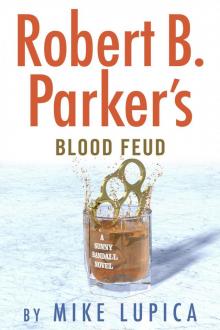 Robert B. Parker's Blood Feud
Robert B. Parker's Blood Feud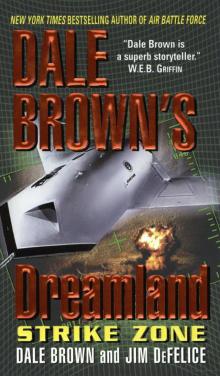 Strike Zone
Strike Zone Hero
Hero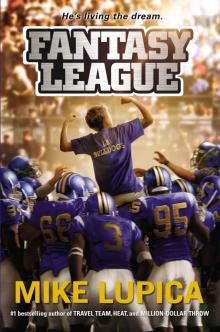 Fantasy League
Fantasy League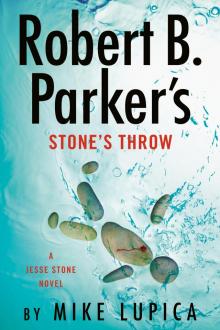 Robert B. Parker's Stone's Throw
Robert B. Parker's Stone's Throw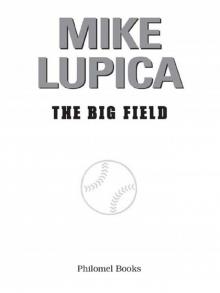 The Big Field
The Big Field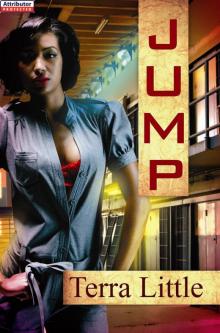 Jump
Jump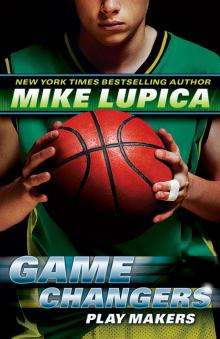 Play Makers
Play Makers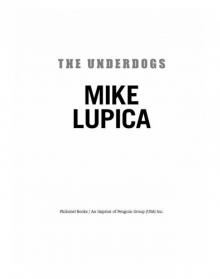 The Underdogs
The Underdogs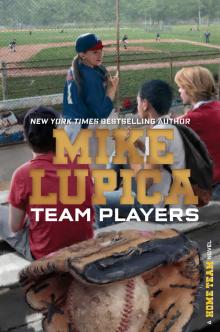 Team Players
Team Players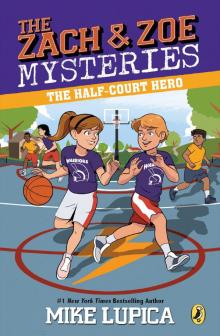 The Half-Court Hero
The Half-Court Hero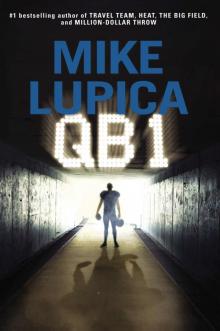 QB 1
QB 1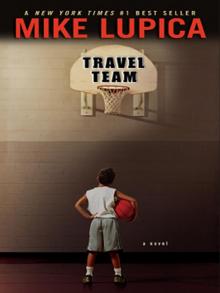 Travel Team
Travel Team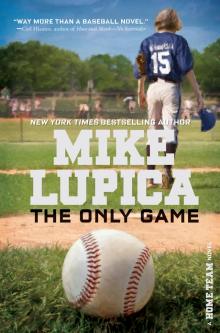 The Only Game
The Only Game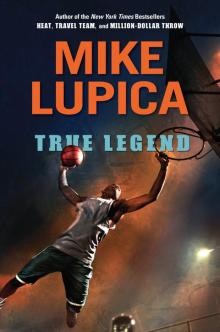 True Legend
True Legend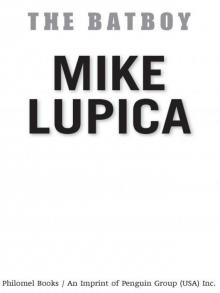 The Batboy
The Batboy Hot Hand
Hot Hand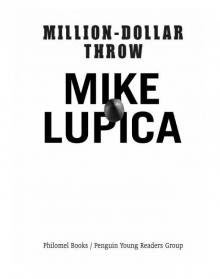 Million-Dollar Throw
Million-Dollar Throw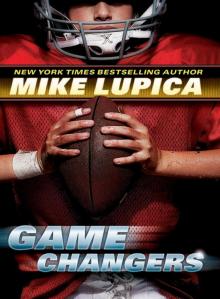 Game Changers
Game Changers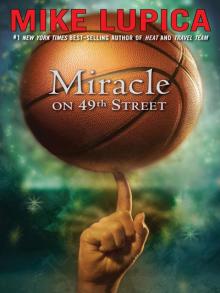 Miracle on 49th Street
Miracle on 49th Street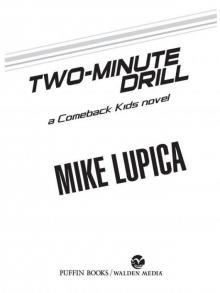 Two-Minute Drill
Two-Minute Drill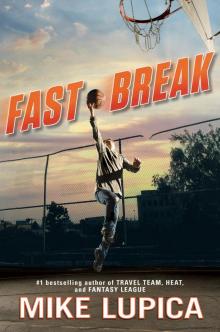 Fast Break
Fast Break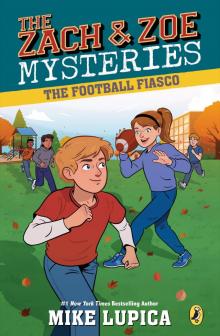 The Football Fiasco
The Football Fiasco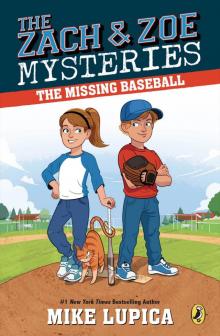 The Missing Baseball
The Missing Baseball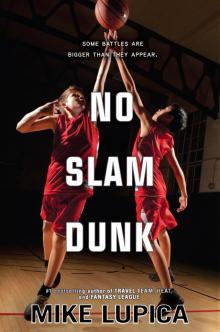 No Slam Dunk
No Slam Dunk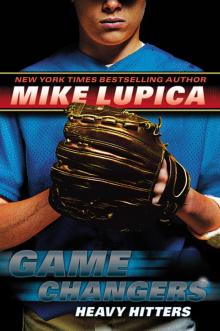 Heavy Hitters
Heavy Hitters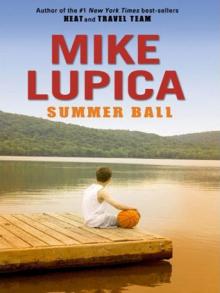 Summer Ball
Summer Ball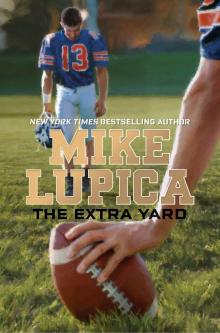 The Extra Yard
The Extra Yard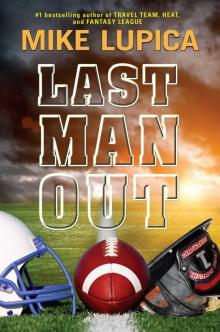 Last Man Out
Last Man Out